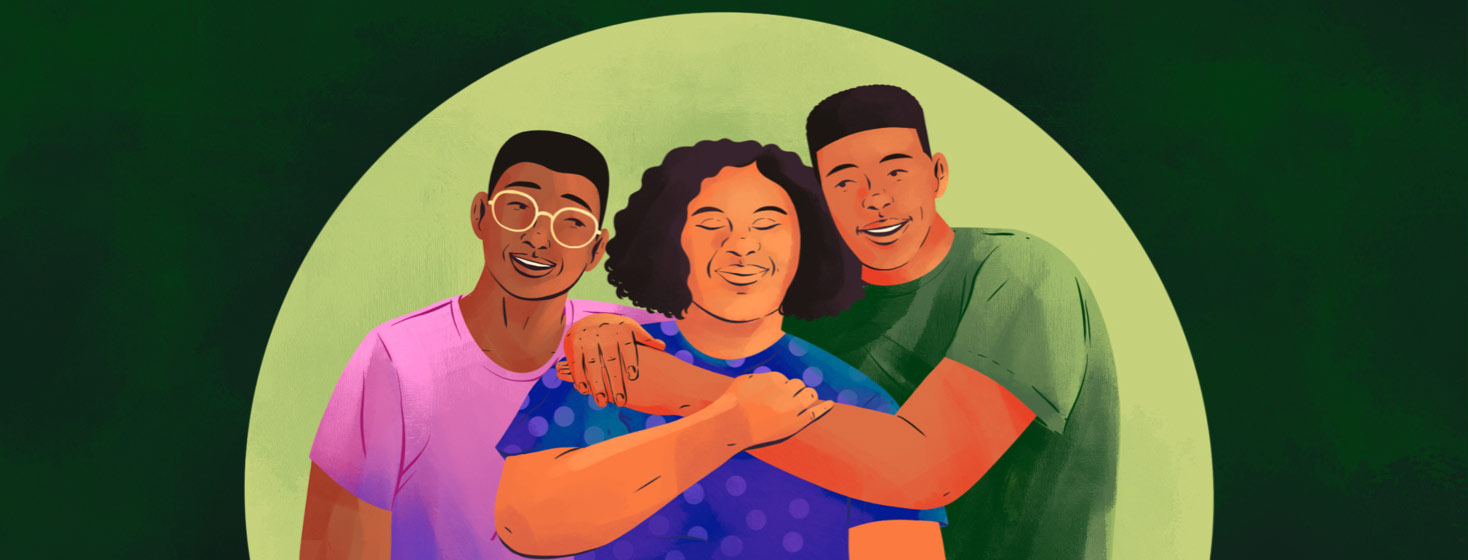Parents – Tell Your Kids About Your Mental Illness
Many mental illnesses tend to run in families. It's not always the same mental illness in every generation, but mental illnesses tend to clump. Despite this, people tend not to talk about family histories of mental illness. I would argue this silence can harm the younger generations.1,2
I didn't know my father had mental illness
I was diagnosed with bipolar disorder almost 25 years ago. It took time for doctors to come around to that diagnosis, but it happened. One of the reasons I didn't get diagnosed with bipolar disorder off the bat, though, was because I had no family history of it. Or so I thought.
After my diagnosis, I was on the phone with my father, and he said to me, "You know I was diagnosed with that, right?"
No, I didn't know that. In fact, no one knew that. That was a secret he had kept. He had never told anyone about his diagnosis. (Needless to say, he hadn't gotten treated either.)
Why should you talk to your child about mental illness?
I was astounded when I found out. Not because my father was a picture of mental health (he was an alcoholic), but rather because no one had known. After I got over the shock, I got mad.
I got mad because had I known he had bipolar disorder, I would have had more of a handle on what had happened to me for years. I had been exhibiting symptoms of a mental illness since I was a child, but no one recognized them. If we had known of his diagnosis, this clue could have ensured I got help so much sooner. In short, his silence cost me years of illness and a worse prognosis. His silence was selfish and destructive.
Why families don't talk about mental illness
I know many families have a "don't ask, don't tell" policy when it comes to family matters. Don't ask about what happened to a pile of money. Don’t ask why those 2 people got a divorce. Don't ask why we stopped seeing that weird uncle.
Whether there are good reasons or not for people to know that information, people just don't want to talk about it. And when it comes to mental illness, many people get uncomfortable at the very notion and are extremely unlikely to open up about it. I do get it. People like to avoid the discomfort.
It's harmful to ignore health issues
But when it comes to mental illness, silence harms and can even kill. Remember, mental illness is a health issue. If your child had an increased risk of cancer, I'm sure you would mention it and have them screened at the first hint of an issue. The same needs to go for mental illnesses. Forewarned is forearmed in all areas of health.
In my case, I was suicidal by the time I was 13. There were multiple reasons for this, but one of them was mental illness. But no one knew to look for that particular issue. (Yes, they should have looked regardless of family history, but I digress.) I didn't know that was contributing to what was happening to me. I could have lost my life because of that lack of knowledge.
This or That
Do you talk to the kids in your life about mental illness?
Talk to your child about your bipolar disorder
So, please, please, if your family has a history of mental illness, talk about it. Educate you and your kids about it. Consider getting help up front so your kids have the tools to deal with anything that may arise. And get them screened by a professional if there's any question about their mental health.
Remember, people who get treatment earlier experience their illness for a short period of time and thus tend to have a better prognosis overall. You owe it to your kids to give them that chance.
(Of course, genetics aren't the only thing that puts a person at risk for a mental illness. Having someone in your family with a mental illness doesn't necessarily mean you will have one. Genetics are only part of the story when it comes to developing a mental illness.)
